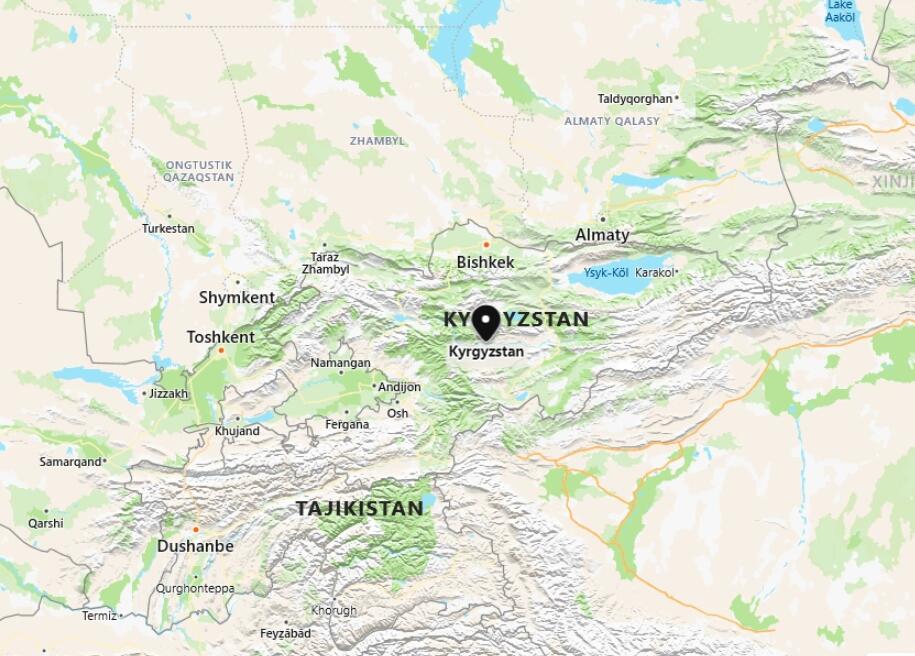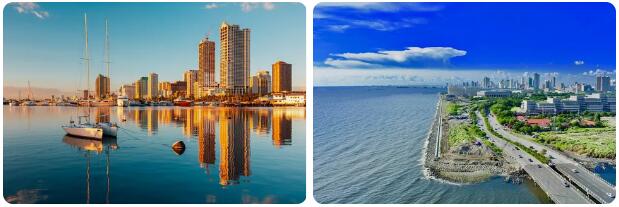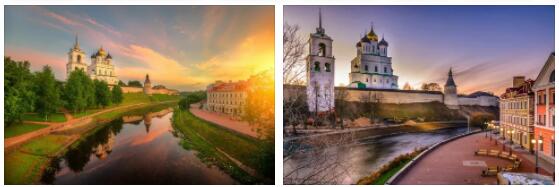Kyrgyzstan 2006
Kyrgyzstan in 2006 was an independent nation located in Central Asia, bordered by China, Kazakhstan, Tajikistan and Uzbekistan. The population of Kyrgyzstan was estimated to be around 5 million people with the majority of the population consisting of Kyrgyz and other ethnic minorities. The capital city of Kyrgyzstan was Bishkek, located in the northern part of the country.
Kyrgyzstan in 2006 had a GDP of approximately $4 billion USD and per capita GDP of around $800 USD making it one of the poorest countries in Central Asia during that period. The economy of Kyrgyzstan relied heavily on agriculture which accounted for around 30% of GDP in 2006 while industry accounted for around 20%. Other important industries included services, manufacturing and mining.
According to constructmaterials, Kyrgyzstan had made significant progress in terms of human development since its transition from Soviet rule to an independent state in 1991 when its Human Development Index (HDI) score improved from 0.579 in 1990 to 0.717in 2006 – making it one of the most developed countries among Central Asian nations during that period. Poverty remained an issue with almost 40% living below national poverty line in 2006 although access to basic services such as education, healthcare and clean water were considered world-class at that time.
Yearbook 2006
Kyrgyzstan. At the beginning of 2006, the People’s Coalition was formed by democratic forces, a group of parties and voluntary organizations that included both opponents and supporters of the country’s new regime. According to CountryAAH, major public holidays in Kyrgyzstan include Independence Day (August 31) and New Year (January 1). One of the leaders was Omurbek Tekebajev who had left the government side. The People’s Coalition grew and reorganized into the For Reform movement, which called for a constitutional reform in which parliamentary rule would replace the strong presidential power. But the government seemed powerless and dissatisfaction grew.
In April, a big demonstration was held in the capital Bishkek in protest against the corruption. The work of the ministers was also criticized in a parliamentary resolution. Almost the entire government filed its resignation, which was not accepted by President Kurmanbek Bakijev. During the year, a Constitutional Council worked on proposals for a new constitution, which would transfer parts of the strong presidential power to Parliament.
In November, large demonstrations were held, with the opposition demanding President Bakijev’s resignation. When Parliament adopted the constitutional amendments, the opposition canceled the protests. It was a unique political development in Central Asia, where change is usually forced through violent protests.
When Bakijev visited Beijing in June, Kyrgyzstan and China agreed on cooperation in the fight against “terrorist forces”, aimed at the Uighur separatists who want to restore East Turkestan, now ruled by China under the name Xinjiang.
In the politically troubled Fergana Valley, Kyrgyzstan carried out raids in border areas during the summer along with Uzbekistani security forces. The intention was to reach radical Islamists, but among those killed there was a very popular imam in the largest mosque at the border between Kyrgyzstan and Uzbekistan.
The contradictions between Parliament and the government in December led to the resignation of the government. Prime Minister Felix Kulov said the intention was to step up the democratic process by making elections to Parliament.
A price conflict led to Uzbekistan temporarily suspending its gas supplies to Kyrgyzstan, but in December negotiations were agreed on an increase from $ 55 to $ 100 per m 3 of gas.
Kyrgyzstan Overview
The Kyrgyz Republic is located in Central Asia, bordering Kazakhstan and China. The road to the Shan Mountains runs through the entire country and comprises several peaks over 7,000 meters high. The climate varies from a dry continental climate to the subtropical climate of the southern parts. The high mountains are very cold all year round and temperatures in the valleys can drop as low as -30 degrees in winter. There are 83 differently protected nature reserves in the country, three of which are UNESCO biosphere reserves. There are more than 2,000 lakes in the country, the largest of which is the 182-kilometer-long Issyk Kul.
- According to abbreviationfinder, KG is the abbreviation code for Kyrgyzstan.
Capital: Bishkek
Area: 199,951 km2
Population: 5,964,897 (estimate 7/2020)
Population density
26 people / km²
Population: Kyrgyz 64.9%, Uzbeks, Russians and more than thirty other tribes
Religion: Muslims 75%, Orthodox 20%, other 5%
Time zone: UTC + 6
Official languages: Kyrgyzstan 64.7% (official), Uzbek 13.6%, Russian 12.5% (official), other 9.2%
Main products: Agriculture, services, industry
Currency: Som (KGS)
Form of government: Republic
Central Asian state. Surrounded by giants such as China, Kazakhstan and Uzbekistan, the small and mountainous Kyrgyzstan has long been one of the most backward countries in Central Asia. Recently, the exploitation of oil resources and gold mines has partially changed the economy, which previously was based mainly on the primary sector for the subsistence of the internal market. In more recent years, rapid industrialization has caused severe environmental problems, especially the pollution of river waters. According to an estimate by UNDESA (United Nations Department of Economic and Social Affairs) in 2014, the population consists of 5,625,015 residents, of which 895,000 in the capital Bishkek. The Kyrgyz people, of Turkic Mongolian ethnicity (Sunni Muslims or atheists), constitute the majority community, especially in rural areas: their main center is Osh (260,000 residents), Around which in 2010 there were clashes between Kyrgyz and Uzbeks. Other minorities contribute to the multi-ethnicity problem of Kyrgyzstan, but the last official census dates back to 1999. Based on 2014 estimates, there is an increase in the number of Kyrgyz people (from 64.9 to 72.6%), a clear decrease (from 12, 5 to 8.2%) of Russians (who, orthodox or atheists, until a few years ago were concentrated in cities, in industrial and tertiary activities), while the percentages of Uzbeks would be almost stable, despite the frictions (13, 8%), Dungan and Uyghurs (both Muslims of Chinese ethnicity,
The infrastructures are very backward, also due to the orographic configuration, marked by deep valleys between the mountains. The interstitial position had guaranteed the Kyrgyz people an important role over the centuries (between Uyghur Samarkand and Uyghur Kašgar); today, on the other hand, it contributes to impoverishing the country due to the heavy customs duties imposed by its neighbors. In recent years, Kyrgyzstan has been trying to enter into agreements with surrounding countries: he is a member of the Shanghai Group (Shanghai cooperation organization, founded in 1996) together with China, Russia, Uzbekistan, Kazakhstan and Tajikistan.






